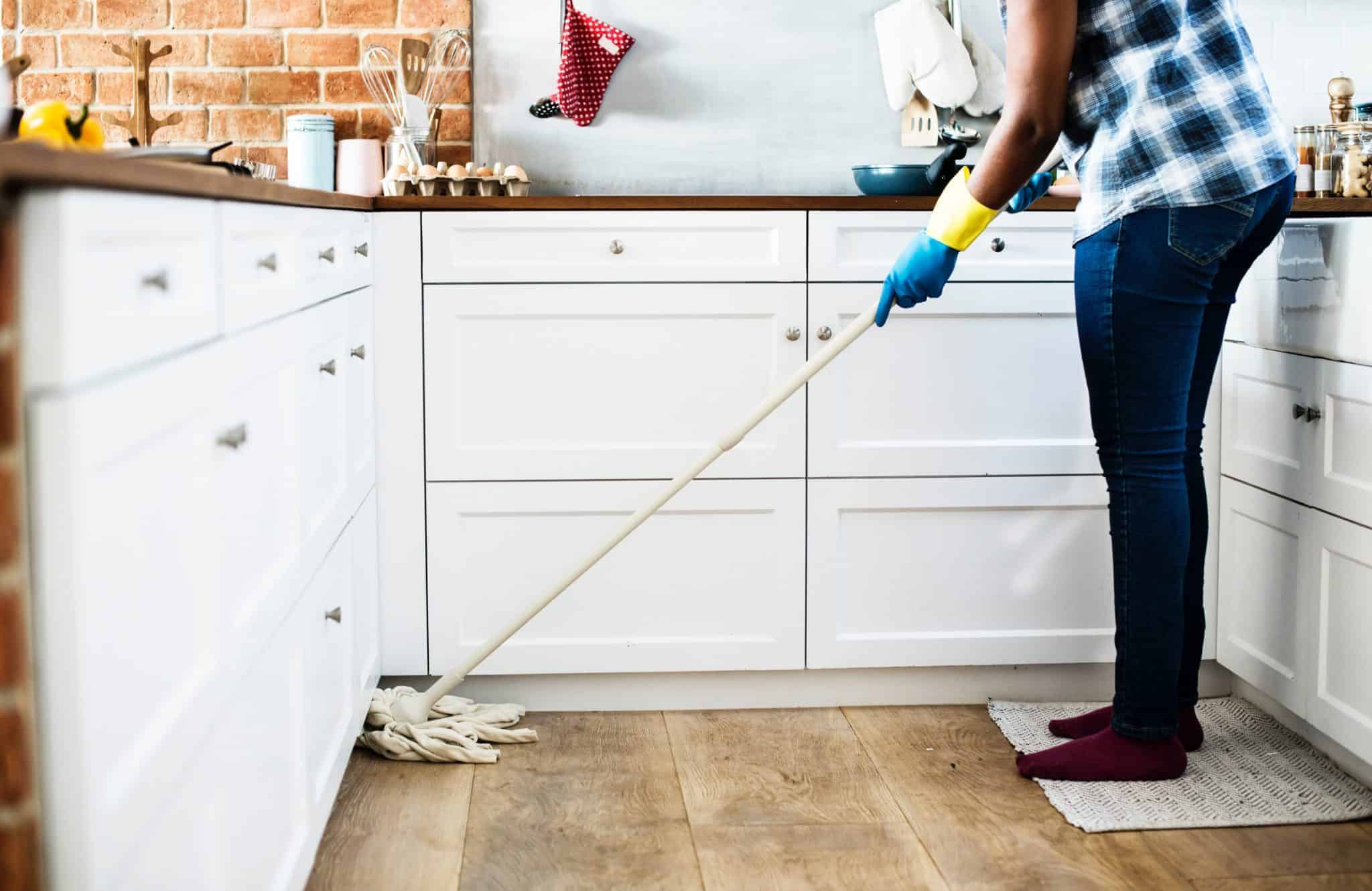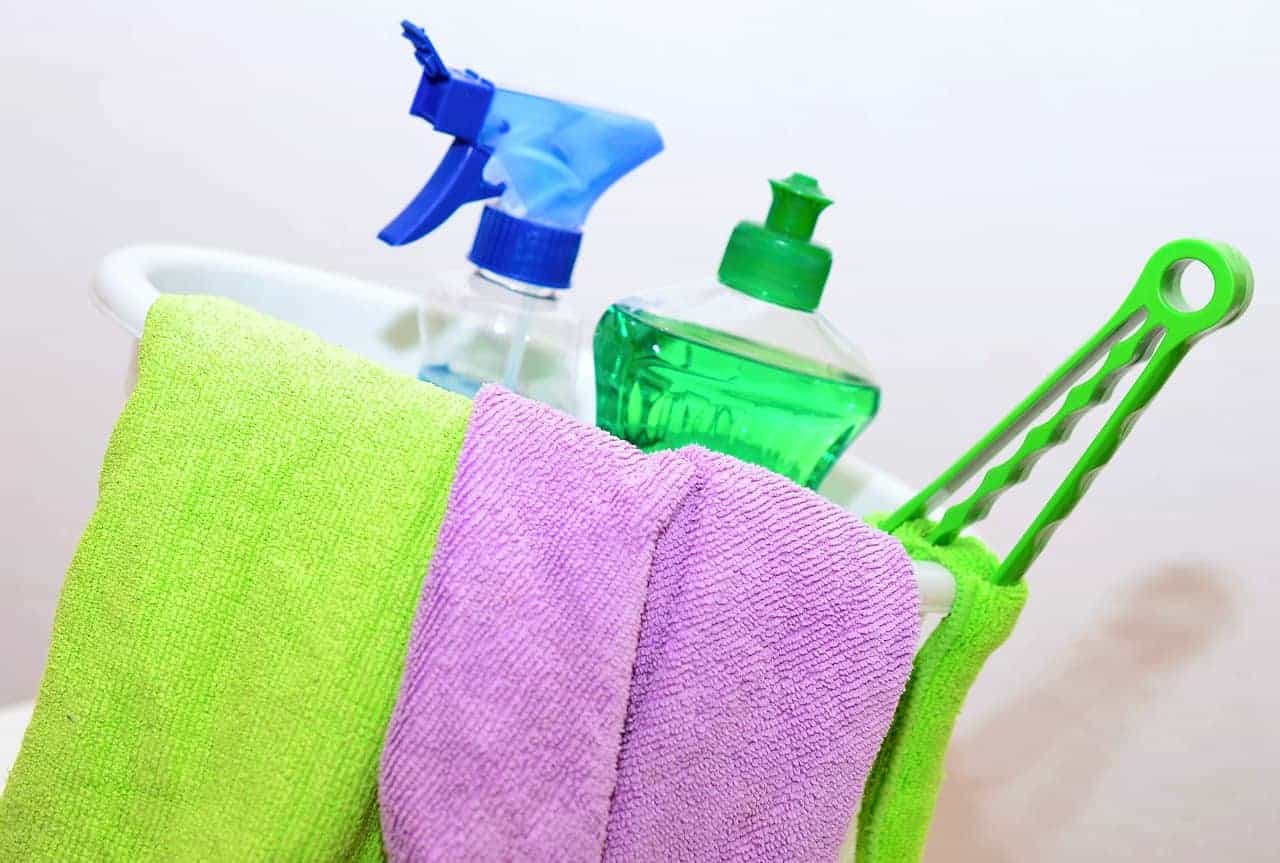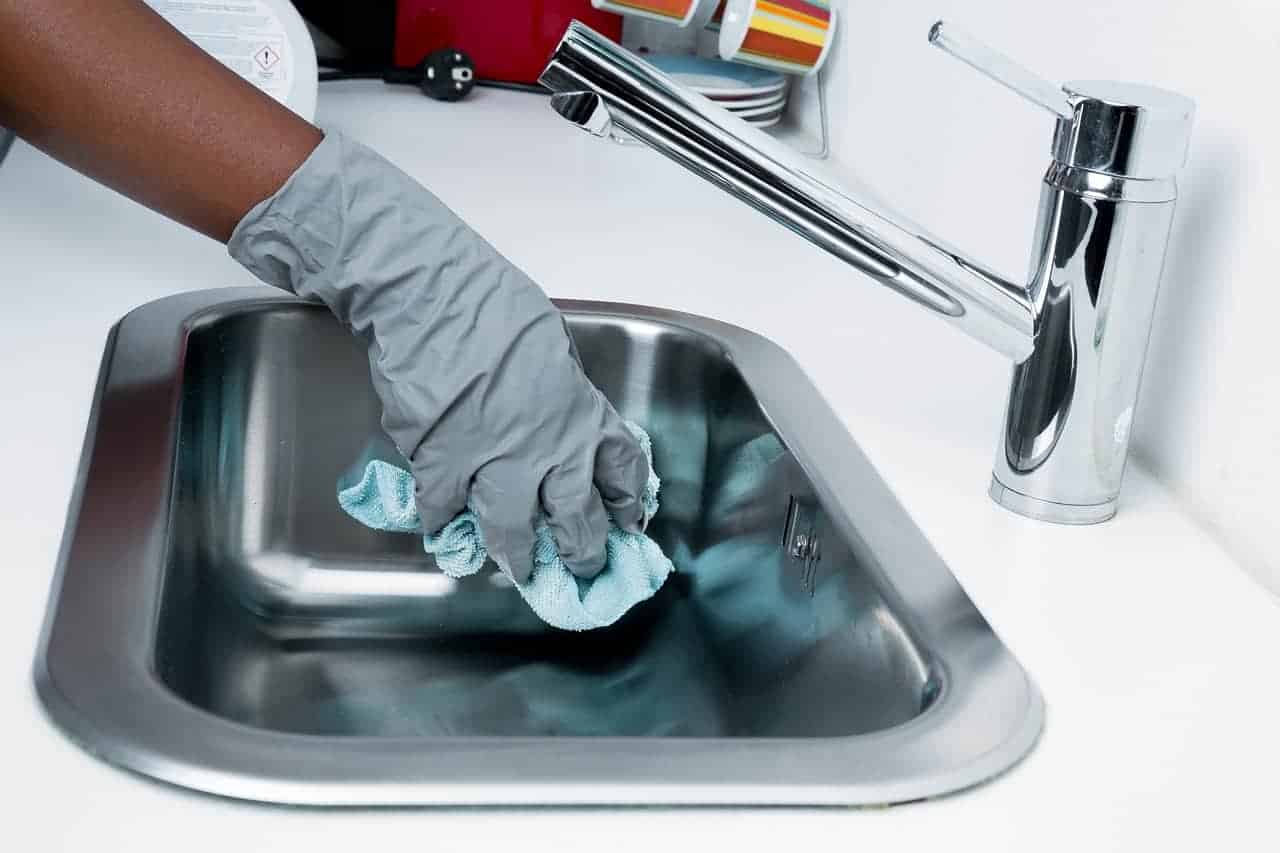
If you’re at all concerned about the presence of harmful chemicals in your home, it’s time to give the cleaning solutions in your cabinet a second look.
After all, these solutions get spread all over surfaces throughout our homes. They regularly come into contact with our skin and food, and they get breathed into our lungs. Plus, their presence is a constant cause for vigilance for parents of small children.
Although store-bought cleaning sprays have been around for years and are marketed with friendly cartoon characters and images of smiling parents cleaning, you may be a bit surprised to learn that there’s very little actual safety testing required of these cleaning solutions.
Companies aren’t even required to list all the specific ingredients they use. And while the risks of some ingredients (whether they’re listed or not) aren’t clear or haven’t been tested, the risks of others have been well established — which is why there are often scary warnings plastered on the labels.
It is indeed possible to clean your house in a way that reduces exposure to questionable or dangerous chemicals. Here’s what you need to know to choose the healthiest possible cleaning methods for your family.
Removing Dirt and Grime Without Dangerous Fumes
Many cleaning products use harsh solvents and surfactants that can be abrasive to our skin and even our lungs.
Chemicals such as ammonia, chlorine, and glycol ethers are known irritants that can cause headaches and skin burns immediately in the wrong concentrations.
But these chemicals can also do sustained damage over time. One study tracked the daily use of industrial cleaning sprays and found that the resulting lung damage for women was akin to the effect of smoking a pack of cigarettes each day.
Quoted in this Independent article, the lead researcher on the study had the following insight: “When you think of inhaling small particles from cleaning agents that are meant for cleaning the floor and not your lungs, maybe it is not so surprising after all.”
Instead of harsh solvents and their chemical fumes, opt for natural solutions that rely on diluted vinegar or baking soda. Vinegar’s acidity makes it a good solvent, and baking soda has both deodorizing properties and an abrasive quality that makes it perfect for scrubbing.

Killing Germs Safely
It’s definitely possible to go overboard when it comes to sterilizing our homes. In fact, many scientists now believe that trying to eradicate all microorganisms from our environments may actually be having a detrimental effect on health.
Quoted in this BBC article, microbiologist Mary Ruebush notes that the lack of healthy bacteria in our bodies “has been linked to immunity, autism, allergy, autoimmunity, mood, and the development of our central nervous system.”
Exposure to healthy bacteria may be even more important for babies and young children. Studies have shown that when they are exposed to healthy bacteria early in life, they have lower risks of allergies later.
So, you probably don’t want to spray disinfectant on every inch of your home. But you’ll still need more powerful, germ-killing solutions to kill the microbes in certain areas, such as those left behind from preparing raw meat or those hanging out in the toilet bowl. And when family members get sick, disinfecting the frequently touched areas in the home, such as remote controls, kitchen tables and doorknobs, is a must to keep sickness from spreading.
When you need to disinfect, avoid cleaners that are specifically labeled “antibacterial.” According to the Environmental Working Group, these labels generally indicate the presence of pesticides such as Triclosan or Aluminum Quarternary Ammonium Compounds (or “QUATS”).
Not only have these pesticides not been shown to be especially effective at killing microorganisms, they contribute to bacterial resistance and help to create potential “superbugs.”
Instead, try alcohol-based cleaners for disinfectant. A solution of 70% alcohol can kill most germs by dehydrating them in under 10 seconds, and there’s no chance for the bugs to try to fight back and occasionally win like they can do against pesticides. Alcohol also makes a great cleaner because it evaporates quickly and doesn’t leave any residue behind.
You can use rubbing alcohol (isopropyl alcohol) or liquor such as vodka (ethanol) for the job. Ethanol is less harmful if ingested (as most of us know firsthand) but can dehydrate the skin, so limit your contact. Note that diluting any alcohol solution under 50% will render it much less effective. The optimum concentration is 60% to 90%, according to the U.S. Center for Disease Control and Prevention.
Removing dirt with a vinegar solution or baking soda paste and finishing your work with a disinfecting alcohol spray of is a good way to keep your surfaces free of both grime and germs.
Smelling Fresh Without the Hormone Disrupting Chemicals
Another significant health problem with standard bottled cleaning sprays comes from the fragrances inside.
Manufacturers don’t even have to disclose exactly what’s in each fragrance, although some have opted to do so.
But added fragrances almost always contain phthalates, chemicals that are known endocrine disruptors (meaning that they can mimic hormones in the body and cause a bunch of potential health problems in the process). Phthalates and other endocrine disrupting chemicals (you may have heard of Bisphenol A, or BPA) can also be leached from plastic — which of course, most store-bought cleaners come packaged in.
In most cases, a few drops of fragrant essential oils can be a great replacement for synthetic fragrance.
Citrus essential oil (such as lemon, orange, lime or grapefruit) adds a fresh, pleasant scent to cleaning solutions, and it also has some antibacterial properties. While citrus is usually a cleaning favorite, other great-smelling essential oils with antimicrobial properties are peppermint oil, lavender oil, and tea tree oil.
Note that essential oils are sensitive to UV light, so they should not be stored in clear containers.
Healthier Ways to Clean
Many of the harmful ingredients in typical cleaning sprays may not cause problems in small amounts. If you work in a well-ventilated area, wear gloves and a mask, and can avoid mixing cleaning solutions together (ammonia and chlorine react to produce chlorine gas, which can cause acute lung injury and even death in the worst cases), you may be able to avoid many of the most dangerous health risks associated with these cleaners.

However, it’s tough to accurately gauge the risks when the exposure hasn’t been studied. And considering we’re exposed to other tiny amounts of similar chemicals in other ways each day, from breathing in car exhaust to drinking tap water to eating food that comes wrapped in plastic, it makes sense to minimize our exposure to chemicals when we can.
As consumers have become more aware of the risks of these chemicals, an increasing number of more natural cleaning solutions can now be found in stores. However, savvy consumers must look out for “greenwashing” — the attempt by manufacturers to use vague labels to appeal to consumers who are trying to be healthier and more responsible. Labels like “natural,” “eco-friendly,” and “biodegradable” have no official certification process and may still be harmful.
That’s why many naturally-minded people are choosing to make their own DIY cleaning solutions. You can easily combine the ingredients we mentioned in this article (vinegar, baking soda, alcohol, essential oil) to create really effective cleaners that cost way less than store-bought solutions and create less waste, too.
Compared to store-bought cleaners, natural DIY solutions are just as effective, cost less, and create less waste.
If you’re ready to start making your own cleaning solutions, remember that glass bottles are the best choice for storage. Unlike plastic, glass does not leach any harmful chemicals into the contents. Glass containers are also better for the environment than plastic, which is a non-biodegradable petroleum product. Plus, some plastic can cause essential oils to degrade.
Amber or other dark colored bottles are ideal for storing cleaning solutions that contain essential oils, because they provide UV protection. Remember to choose bottles that come with caps as well as nozzles makes them ideal for storage purposes.
For high-quality glass bottles perfect for natural DIY cleaning sprays, head on over to Sally’s Organics Amazon Store.